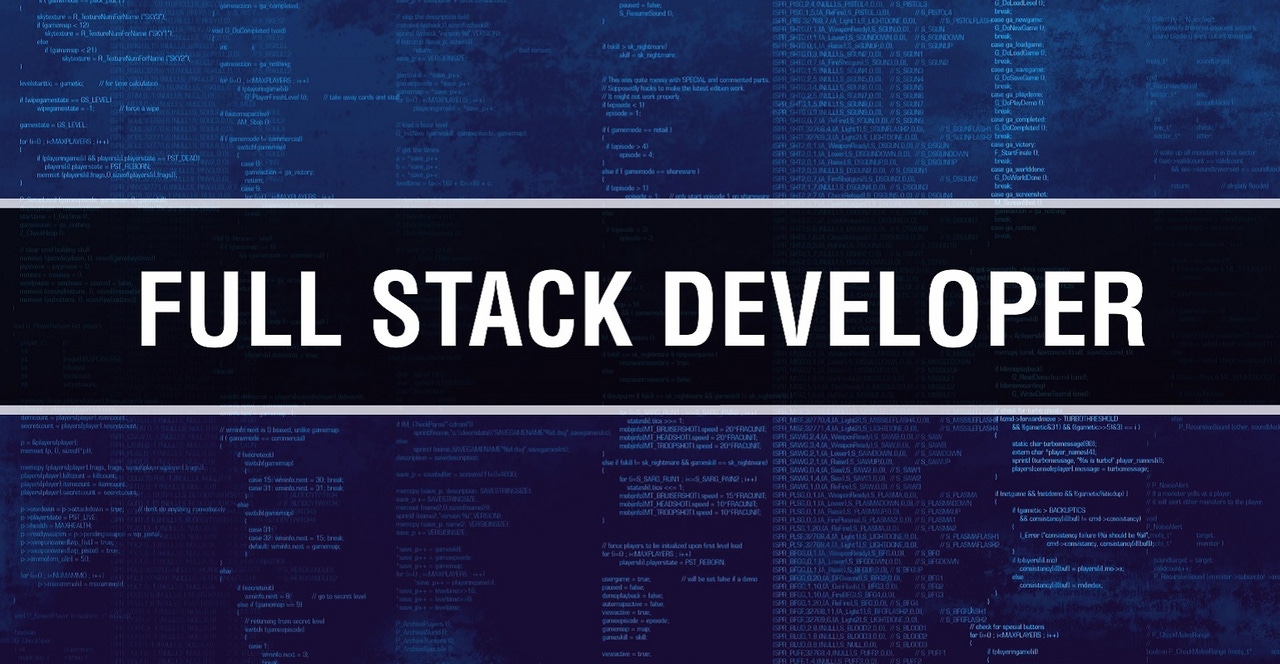Weighing the Pros and Cons of Becoming a Full-Stack DeveloperWeighing the Pros and Cons of Becoming a Full-Stack Developer
Do the benefits of becoming a full-stack developer outweigh the drawbacks? Here are the pros and cons of full-stack development to help you decide.

At first glance, becoming a full-stack developer — meaning an engineer who knows how to handle both the front-end and back-end aspects of application development — may seem like a no-brainer. Who wants a developer who can only do front end or back end when they could hire a full-stack dev to do it all?
In some ways, that's a reasonable position to take. However, there are some compelling reasons not to become a full-stack developer.
So, before you commit to a full-stack developer role — and the education and training that it requires, weigh the pros and cons of full-stack development, as compared with specializing just in front-end or back-end roles.
Three Advantages of Being a Full-Stack Developer
There are a number of potential benefits to having full-stack development skills. Arguably, the three most important are the following:
1. You'll appeal to employers
From an employer's perspective, a developer who knows the full stack is obviously attractive. Instead of hiring one developer for the front end and another for the back end, the company can hire just one programmer.
The caveat is that some employers may wonder whether full-stack developers have the depth of skills necessary to cover the full stack well. That's probably part of the reason why full-stack developers are paid less, on average, as noted below. Still, at least some companies will find full-stack developers attractive to hire — especially smaller companies that lack the resources to invest in separate front-end and back-end roles.
2. You can manage the whole stack
As a full-stack developer, you're likely to have more freedom to work independently because you can develop, test, and troubleshoot the whole stack on your own.
In contrast, if you work only on the front end, you'll spend a lot of time collaborating with back-end developers to work on issues — and vice versa if you specialize in back-end development.
The ability to work on the whole stack independently is an advantage for developers who particularly prefer to work on their own, without constantly checking in with teammates or depending on others to complete a task before they can begin another one.
3. Your job is more versatile
For developers who like a constantly changing pace, full-stack roles are probably the way to go. Being full-stack means having more technologies and processes to work with, and more variation in what you do day-to-day.
It also means that you'll have more opportunity to engage with new and emerging technologies, and to be at the forefront of innovation at your organization. You're less likely to become bored by using the same tools and doing the same work day in and day out.
Three Challenges of Full-Stack Development
On the other hand, there are clear drawbacks to becoming a full-stack developer, at least in some cases.
1. You'll earn less money
On the whole, full-stack developers earn less money than their front-end or back-end counterparts, at least according to Salary.com.
This may seem a bit surprising. You may think that employers would pay more to hire full-stack developers who can, in theory, handle a job that would otherwise require two developers.
But it's likely the case, as noted above, that at least some employers hesitate to pay a premium for full-stack roles because they believe full-stack developers don't have the depth necessary to build an entire application on their own. They'd rather pay for deep and narrow expertise than broader but generic expertise.
Of course, full-stack developers who do actually have real depth across the entire application stack are likely to be the exception to the salary trend. If you truly can do the work of two developers on your own, you'll probably earn more.
2. You must contend with constant change
Because full-stack developers have to master more tools and technologies, they have to work harder to keep up with changes in the software development landscape. As a full-stack dev, expect to spend more time researching new tools or helping to plan more projects.
For some people, constant exposure to change may be a good thing. But if you're the type of person who just wants to do one thing and do it well, you may not be a great fit for full-stack development.
3. You'll accept more blame when things go wrong
As a full-stack developer, you can't easily point the finger at someone else when your application doesn't work as expected. If you own the full stack, you also own any performance, security, or other issues that exist within the app.
If you don't like being in the line of fire when application problems arise, then, full-stack roles may not be for you.
Conclusion
In short, full-stack developers have more responsibilities. That translates to a more diverse experience on the job, and possibly to more attractiveness in the eyes of employers. But it also means that full-stack developers have to master more skills and accept more blame — and, despite this, they don't necessarily earn more than front-end or back-end developers.
About the Author
You May Also Like








.jpg?width=700&auto=webp&quality=80&disable=upscale)
